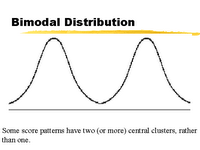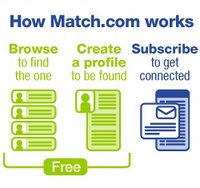 A couple of days ago I met a friend, colleague and business partner of mine who lives in Trinidad. We spent all of an hour together. Yet, this was only the second time we have ever met in person.
A couple of days ago I met a friend, colleague and business partner of mine who lives in Trinidad. We spent all of an hour together. Yet, this was only the second time we have ever met in person.
The Internet has further opened up the possibility of doing business with people that we hardly know, and this is not limited to performing simple transactions. What enables this deeper level of commerce and cooperation is not how well we know other people from first-hand or second-hand sources, but how well we can get to know them from the different sources that exist in cyberspace.
Knowing someone from their Internet “reputation” is very different than knowing that they have certain qualifications or experiences, or hold one position or another.
I am listening to a brilliant, not-so-new audiobook by Seth Godin called “All Marketers are Liars.” In the book he talks about a company being authentic, and allowing its true character to come across in all communication with the public. An example: some CEO’s have blogs, and these blogs give very powerful insight into the true nature of the company, especially when the blog has an authentic voice. Not surprisingly, those bloggers that insist on trying to “put their best face forward,” are the ones that appear to be the most “faked”. When the blogger is a CEO it puts the entire company at even greater risk.
Successful networking in the Internet age has a great deal to do with having the courage to be authentic in cyberspace, and taking a lead in defining oneself.
The truth is, that if we do not take the lead to do it ourselves, then someone else will do it for us by mentioning that they met or know us, and what their impressions are/were. In other words, we run the risk of being defined by others to our detriment.
Most of the defining will be done by strangers.
Can these strangers be trusted?
Whether or not they can be, they must be interacted with, if we as professionals are at all interested in creating a personal brand that people can trust. If we think about the interactions we are interested in having, we can drive them towards certain outcomes that we have an interest in.
For example, a professional project manager who has an interest in the management of concerts could express it in the formation of a public brand that demonstrates their passion, and expertise. Over time, they could simply corner the market on this brand by generating an Internet and therefore public presence.
What allows this to happen is a skill at interacting with strangers in cyberspace.
This is a skill that I cannot quite name, but it has to do with learning how to make and trust Internet acquaintances, both professional and personal. Kids in their teens get this concept readily — they live in a networked world in which friends are thousands of miles away in other countries, and they communicate with them via IM, email and text messages in real time.
In our day we had something called a Pen Pal — a stranger we got to know by exchanging mail over long distances, and long time periods.
Today, the intervals have been shrunk dramatically.
We have blogs like this one, in which, with the click of a Publish button, anyone in the world can have instant access to any of the thoughts that I wish to share.
The difference is staggering, and the trust required to operate in this new world is quite different from what it ever used to be. Instead of trusting my Pen Pal, I now need to trust millions of people who interact in cyberspace.
The upside of all this instant exposure is that cyberspace can be used to amplify authentic messages — warts and all.
For the professional, deciding to stay away from it all is just not an option. Having no presence on the Internet is a little like not having a telephone — it communicates something about our level of seriousness and professionalism regardless of whether or not that is the message that we wants to send.
The best option, as always, is to be proactive, and to master the medium. There are many ways to get our message and our brand out, but it is up to us to use them to our benefit.






